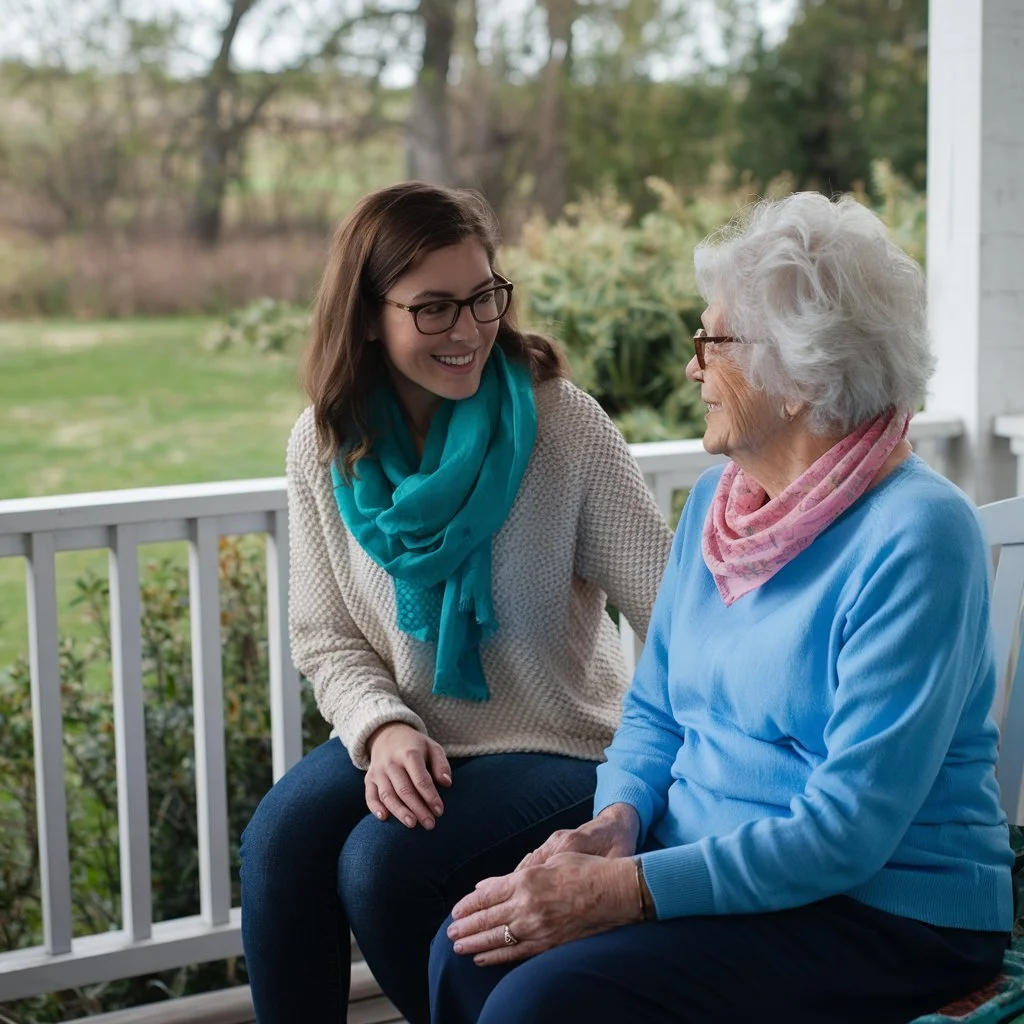How to Respond to Common Dementia Behaviors Without Losing Patience
When Dementia Affects Behavior, It Affects Everyone
If you're caring for a loved one with dementia, you're not just managing their schedule you’re navigating unpredictable behaviors that can leave you drained, frustrated, or even heartbroken.
Mood swings, confusion, aggressive outbursts, or the same question asked over and over again… it’s enough to test the patience of anyone.
But you’re not alone. These changes are a normal part of dementia progression, and there are proven ways to respond with confidence, compassion, and calm.
“Behavior is the way your loved one is communicating when words fail. When you change how you respond, you often change the outcome.”
Why Do Dementia Behaviors Happen?
Dementia related behaviors, like confusion, wandering, agitation, or aggression aren’t intentional. They’re usually responses to:
Fear or overstimulation
Physical discomfort or unmet needs
Loss of control or unfamiliar environments
Frustration from not understanding or being understood
Common Behaviors & How to Respond Without Losing Your Cool
1. Repetition or Asking the Same Question Over and Over
Why it happens: Short-term memory loss means they don’t remember they already asked.
What to do:
Respond calmly, as if it’s the first time
Use visual cues (notes, calendars)
Redirect with an activity
Reassurance is more important than facts. Respond to the emotion, not just the question.
2. Aggression or Verbal Outbursts
Why it happens: Fear, confusion, or frustration.
What to do:
Stay calm and non-confrontational
Use short, gentle sentences
Avoid arguing
Rule out physical discomfort
3. Wandering or Attempting to Leave the Home
Why it happens: Restlessness or the belief they need to “go somewhere.”
What to do:
Redirect with a task or familiar object
Avoid blocking their path
Use home safety measures (e.g., door alarms)
4. Sundowning (Late Day Confusion)
Why it happens: Fatigue, low lighting, or disrupted rhythms.
What to do:
Keep evenings quiet and well-lit
Avoid caffeine
Encourage a calming routine
5. Accusations or Paranoia
Why it happens: Memory gaps lead to confusion.
What to do:
Validate feelings (“That sounds upsetting.”)
Gently redirect
Avoid defending or arguing
Real Help for Real Challenges
Promise Senior Solutions Dementia Specialist caregivers are trained in:
De-escalation & Redirection
Verbal & Non-Verbal Communication
Cognitive Stimulation
Signs of Discomfort
Bathing & Hygiene Encouragement
Mobility & Fall Safety
Our caregivers receive certification in their continuing education and care specialization.
“My mom used to get so angry and confused at night. The Promise caregiver knew exactly how to help her calm down, and it gave me peace of mind to sleep again.”
Caregiver Survival Tips:
Take breaks often
Ask for help before burnout hits
Join a support group
Focus on small wins
Don’t try to be perfect
Additional Resources for Behavioral Response Strategies
Redirection and Person-Centered Interventions
A systematic review in the British Journal of Psychiatry found that non-pharmacological, person-centered approaches—such as communication training and sensory-based activities like music therapy—effectively reduce agitation and behavioral symptoms in dementia.Verywell Health+15nhqualitycampaign.org+15Northern Light Health+15
Use of Distraction Techniques
A clinical implementation project demonstrated that distraction techniques help redirect focus and de-escalate agitation in dementia patients, reducing the need for restraints or medication.Managing Sundowning Behavior
Research on “sundowning” (evening confusion and agitation) shows environmental modifications—like structured routines, calming lighting, and consistent schedules—can significantly reduce episodes and improve caregiver and patient well‑being.Practical Neurology+15Omics Online Publishing+15helpdementia.com+15

